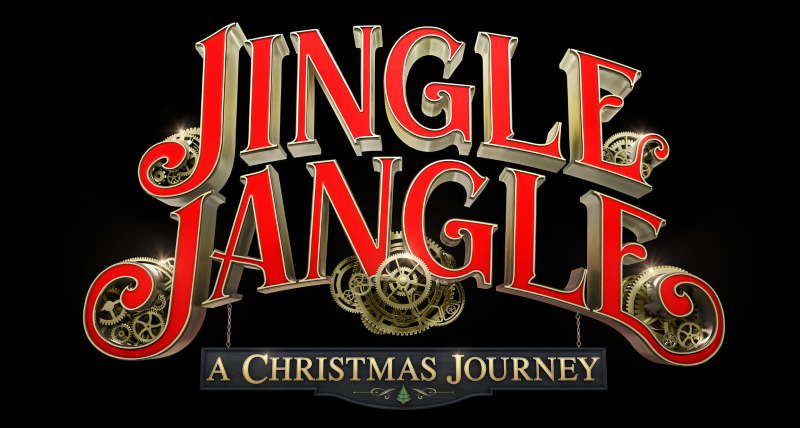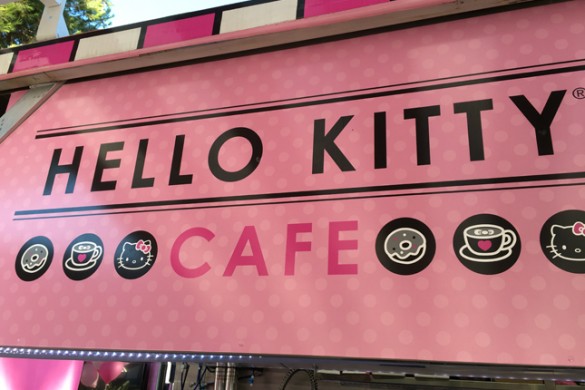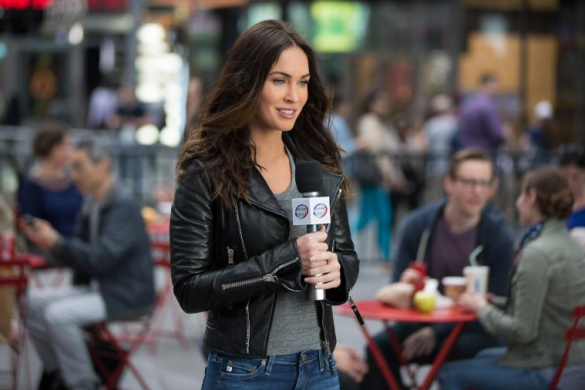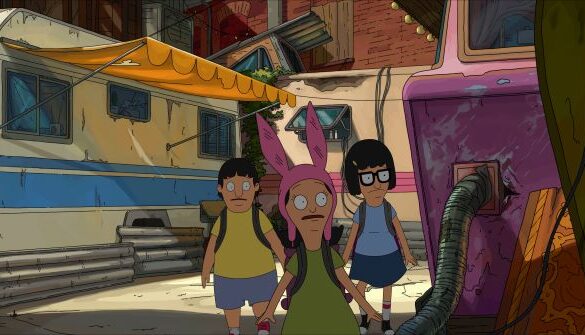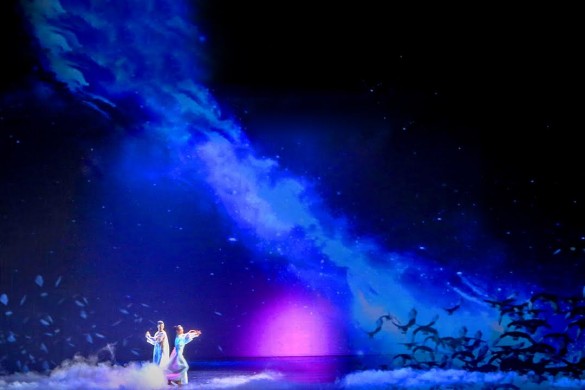Though the feeling of loneliness and isolation due to the pandemic has no doubt left us in a state of depression, we can rely on the comforts of a Christmas movie to remind us that even though things can seem hopeless, not all is lost. David E. Talbert’s ‘Jingle Jangle‘ is a proud Black Christmas musical with a resonating story that is not only joyful but will indeed speak to all children and to the young at heart.
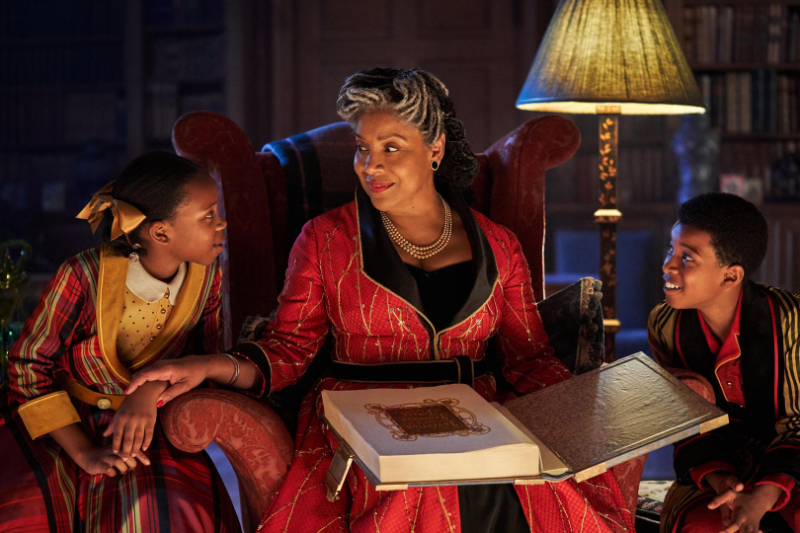
In the film, a Grandmother (Phylicia Rashad) reads Jingle Jangle to her grandchildren on Christmas Eve. The book, which resembles a steampunk pop-up book, tells the story of Jeronicus, a brilliant toymaker, and dedicated father. He wants nothing more than to spread joy and laughter in Cobbletown, a small Victorian town that looks like a novelty Christmas shop. Though a genius in his own right, Jeronicus doesn’t notice that his latest invention, Don Juan, a narcissistic mechanical doll, will do anything to stop his creator from taking his very image into mass production.
Using his fiery powers of persuasion and a little bit of song and dance, Don Juan (voiced by Ricky Martin) promises the malleable Gustafson, Jeronicus’s apprentice, that he can have the same success and genius if he takes him away and “borrows” Jeronicus’s book of inventions “indefinitely.” Tired of his mentor’s lack of help, Gustafson agrees. This cruel act of betrayal didn’t just turn Gustafson into one of the richest toymakers in the world. It also left Jeronicus a broken man. Not only did his once-loyal apprentice take his life’s work away, but his wife was also taken away by an illness.
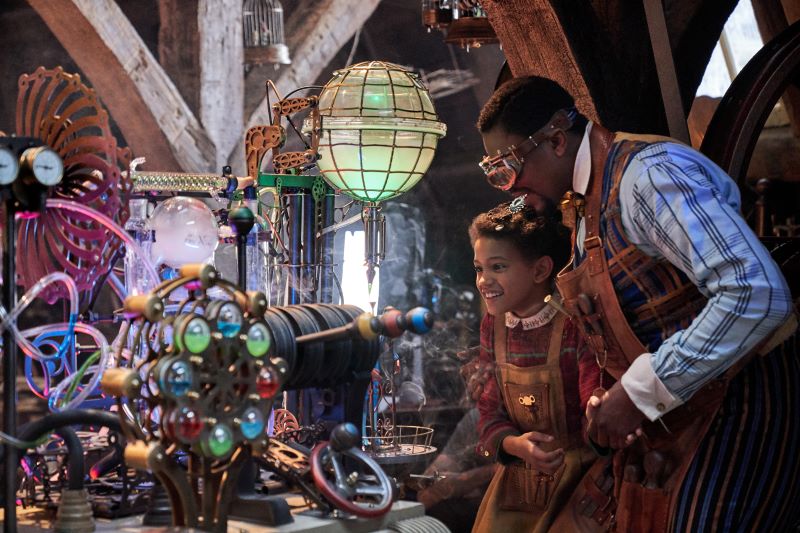
And though Jessica, Jeronicus’ wife, tried to fill that void left behind by her mother, the loss was too significant. Eventually, Jessica would move away, leaving the once-proud father toymaker to be an emotionally distant pawnshop broker. Decades later, Jeronicus (Forest Whitaker)’s Jangle and Things, which brought him, his family, and the town much happiness, has been reduced to a dusty pawnshop. He is behind on his bills, and the bank will seize everything he owns unless he can come up with a spectacular toy by Christmas.
Though things may seem bleak, Jeronicus sends a letter to Jessica (Anika Noni Rose) inviting her daughter Journey (Madalen Mills) to come to visit the shop. Though Jeronicus says he has nothing to offer, Journey believes in otherwise, and soon she, and her new friend Edison (Kieron L. Dyer) discover the Buddy 3000, just the invention that Jeronicus needs to defeat the traitorous former apprentice Gustafson (Keegan Michael-Key).
Everything about ‘Jingle Jangle,’ from the costume and production design to the songs and child-like sense of innovation and adventure, sparkles with Christmas magic. Talbert’s script speaks to the child that is watching his film and the inner child in all adults who happen to be watching along. Inspired by classics like Mary Poppins and Willy Wonka and the Chocolate Factory, there is an undeniable whimsy texture to Jingle Jangle that makes it fun for the kids who may not be familiar with those films, and nostalgic for the adults.
Steampunk set pieces that help create the toys, vintage automobiles, windup toys with cogs and gears all take us back to a time where innovation brought people together. And Talbert recreates that sense of joy and wonder through the eyes of Journey, a well-mannered inquisitive girl who defies societal expectations by focusing on STEM (Science, Technology, Engineering, Math).
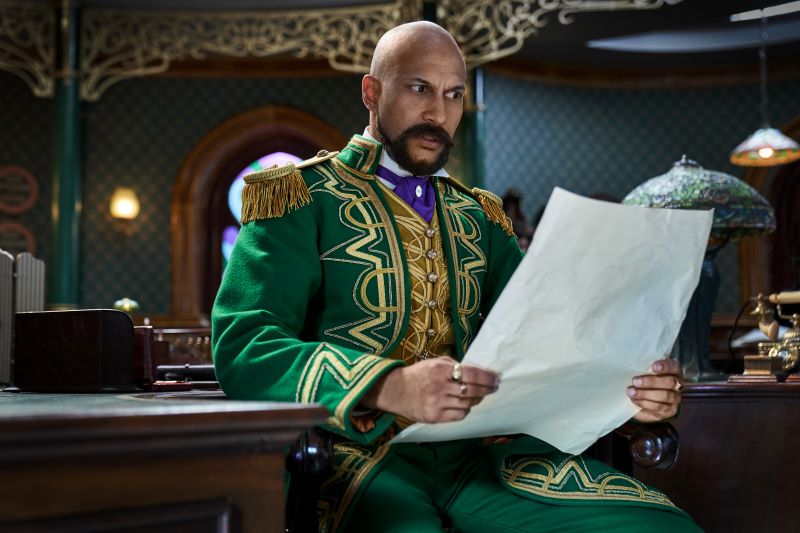
A lot of that child-like sense of wonder energy shines through Mills, who carries the film effortlessly and can play opposite the like of Whitaker, Keegan-Michael Key, and Anika Noni Rose. That endearing quality to Mills is irresistible, so much so that you can help be drawn towards her light. She’s curious but also wise beyond her years, never letting anything like negativity or the words “can’t” and “impossible” stop her from achieving what is possible.
It’s a message that should be able to connect to kids, especially the young Black audience. Seeing yourself on screen in such a positive way means a great deal for those who have suffered through the indignities of hateful discrimination. The film tears down many of those stereotypes to show that people of color, specifically Blacks, can be just as interested in STEM as anyone else. But Talbert’s film doesn’t just stop at representation. At its core, Jingle Jangle is a heartwarming and joyful human story accented through the use of contemporary musical and dynamic.
And these songs are not overly Christmas. They are lyrical messages of joy, optimism, and perseverance. So even though ‘This Day,’ ‘Not the Only One,’ and ‘Square Root of Possible,’ may draw its inspiration from Disney animated musicals, or even ‘Mary Poppins,’ they are reminders of how songs are a universal language that has the power to inspire generations across the board.
What makes Phillip Lawrence’s songs unique is that it’s a blend of Soul and R&B set against a Victorian English setting, which creates a world that looks and feels vintage but sounds contemporary. But it doesn’t stop there. ‘Jingle Jangle’s narrative also speaks to the current culture that wants women of color to thrive as champions of STEM. Throughout the film, Journey performs whimsy calculations like “the circumference of spectacular” or “the second derivative of sensational.” Sure, it’s lighthearted glib that doesn’t make any sense and is reminiscent of ‘Mary Poppins,’ but a lot of the film feels like it’s own thing.
Though ‘Jingle Jangle’ may be formulaic and predictable, it makes up for those shortcomings with its original story and diverse cast. Talbert’s film is fresh and innovative, and inspirational, while the musical numbers make the film sparkle even brighter. But the real star of the film is Mills, who is endearing but never oversells it. And during a time of isolation and uncertainty, we could use the film’s Christmas cheer to remind us about the power of staying hopeful.
Jingle Jangle streams exclusively on Netflix on November 13!

